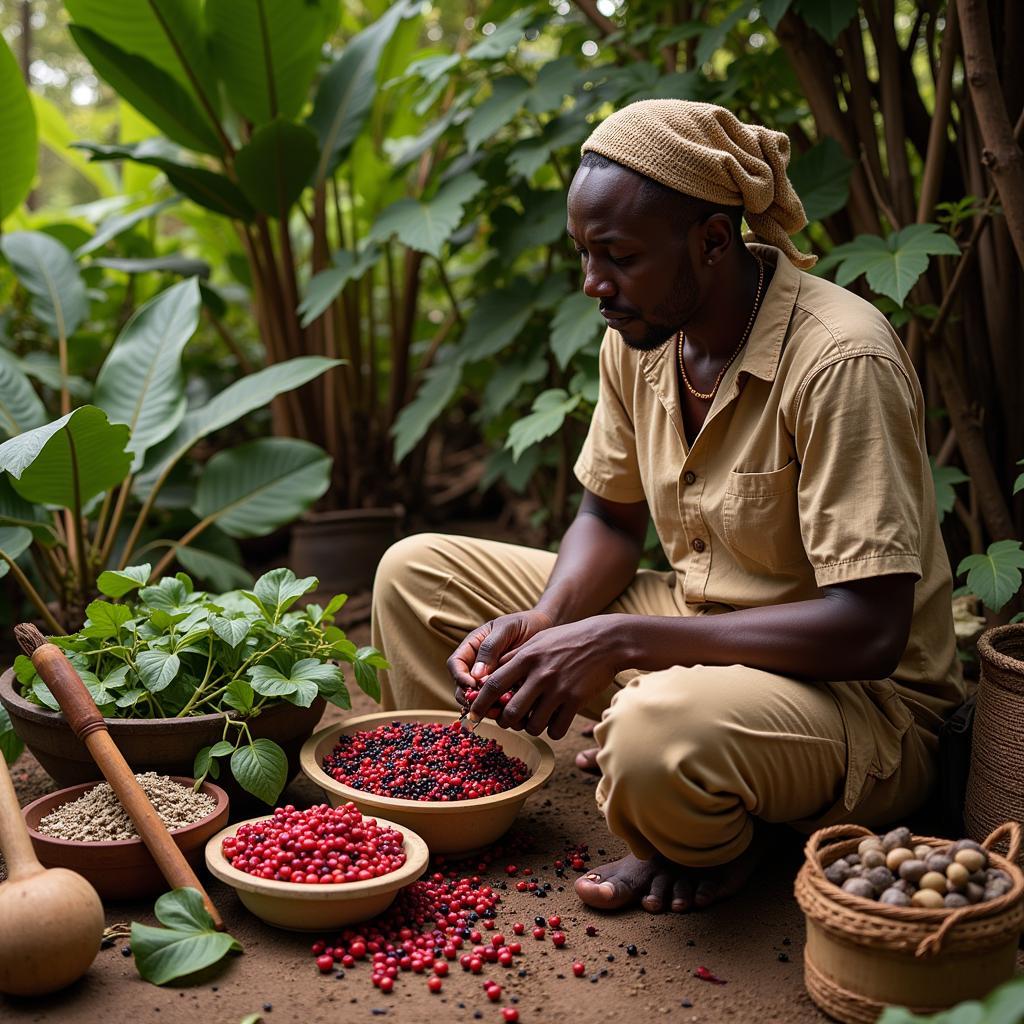African Berry Against Nipah Virus: Exploring Potential Solutions
The potential of an African berry against the Nipah virus is a topic garnering increasing attention. This article delves into the current research, traditional uses, and potential benefits of these berries in combating this deadly disease. We’ll examine the scientific evidence, explore the cultural context, and discuss the future possibilities of this exciting area of research.
The Nipah Virus: A Growing Threat
The Nipah virus (NiV) is a zoonotic virus, meaning it can be transmitted from animals to humans. It can also be spread through contaminated food and, less commonly, through direct contact between people. Nipah virus outbreaks have occurred primarily in Southeast Asia, specifically Malaysia, Singapore, Bangladesh, and India. The virus causes a range of illnesses from asymptomatic infection to acute respiratory illness and fatal encephalitis. Currently, there are no licensed treatments or vaccines for Nipah virus infection, making research into potential remedies, like the use of African berries, crucial.
African Berries: A Source of Hope?
Several African berries have shown antiviral properties in laboratory settings, sparking interest in their potential use against the Nipah virus. While research is still in its early stages, the unique compounds found in these berries offer a promising avenue for developing new treatments. These berries, traditionally used for various medicinal purposes in African communities, are rich in antioxidants, vitamins, and other bioactive compounds, some of which have demonstrated antiviral activity against other viruses.
Which African Berries Show Promise Against Nipah Virus?
While research is ongoing, certain African berries, like the Nauclea latifolia fruit, have shown promising results in preliminary studies. These studies, often conducted in vitro, suggest that extracts from these berries can inhibit viral replication and reduce the severity of infection. However, it’s important to note that these are preliminary findings, and more research, including clinical trials, is needed to confirm these effects in humans.
Traditional Uses of African Berries in Medicine
For centuries, African communities have utilized the medicinal properties of various indigenous plants, including berries. These traditional uses provide valuable insights into the potential therapeutic applications of these plants. From treating fevers and inflammation to combating infections, these berries have played a vital role in traditional healthcare systems. This rich ethnobotanical history provides a foundation for scientific investigation into the efficacy of these traditional remedies.
From Traditional Knowledge to Modern Medicine
The knowledge accumulated through generations of traditional use is invaluable in guiding modern research. By examining the traditional uses of these berries, scientists can identify potential targets for drug development and gain a better understanding of their mechanisms of action. This integration of traditional knowledge with modern scientific methods holds great promise for discovering new and effective treatments for diseases like Nipah virus.
 Traditional African Medicine Using Berries for Healing
Traditional African Medicine Using Berries for Healing
The Future of African Berry Research and Nipah Virus Treatment
The research on African berries and their potential against the Nipah virus is still in its nascent stages. Further studies, including animal models and human clinical trials, are necessary to determine the efficacy and safety of these potential treatments. However, the preliminary findings are encouraging and offer a glimmer of hope in the fight against this deadly virus.
Challenges and Opportunities
While the potential is significant, challenges remain. Standardizing extracts, ensuring sustainable harvesting practices, and conducting rigorous clinical trials are crucial steps in translating laboratory findings into effective therapies. However, the opportunity to discover new and effective treatments for Nipah virus, derived from natural sources, is a compelling motivation for continued research.
“The potential of African berries in combating viral diseases is vast and largely unexplored,” says Dr. Abimbola Adebayo, a leading ethnobotanist specializing in African medicinal plants. “These plants represent a treasure trove of bioactive compounds, waiting to be discovered and harnessed for the benefit of human health.”
 Laboratory Research on African Berry Extract Against Nipah Virus
Laboratory Research on African Berry Extract Against Nipah Virus
Conclusion
The exploration of African berries as a potential treatment against the Nipah virus is a promising area of research. While much work remains to be done, the preliminary findings and the rich history of traditional use offer hope for the development of new and effective therapies. The continued investigation into the antiviral properties of these berries is crucial in the fight against this deadly disease. Further research on African Berry Against Nipah Virus will be instrumental in developing effective treatments.
FAQ
- What is the Nipah virus?
- How is the Nipah virus transmitted?
- Are there any approved treatments for Nipah virus?
- What are the symptoms of Nipah virus infection?
- Which African berries are being studied for their antiviral properties?
- What are the challenges in developing treatments from African berries?
- Where can I find more information about Nipah virus and ongoing research?
Scenarios & Questions
Scenario 1: A person has been exposed to a bat, a known carrier of the Nipah virus. What precautions should they take?
Scenario 2: A person is experiencing symptoms consistent with Nipah virus infection. What steps should they take?
Further questions to explore:
- What are the long-term effects of Nipah virus infection?
- What research is being done on developing a vaccine for Nipah virus?
- How can communities protect themselves from Nipah virus outbreaks?
For more information or if you need support, please contact us: Phone: +255768904061, Email: kaka.mag@gmail.com Or visit us at: Mbarali DC Mawindi, Kangaga, Tanzania. We have a 24/7 customer service team.


